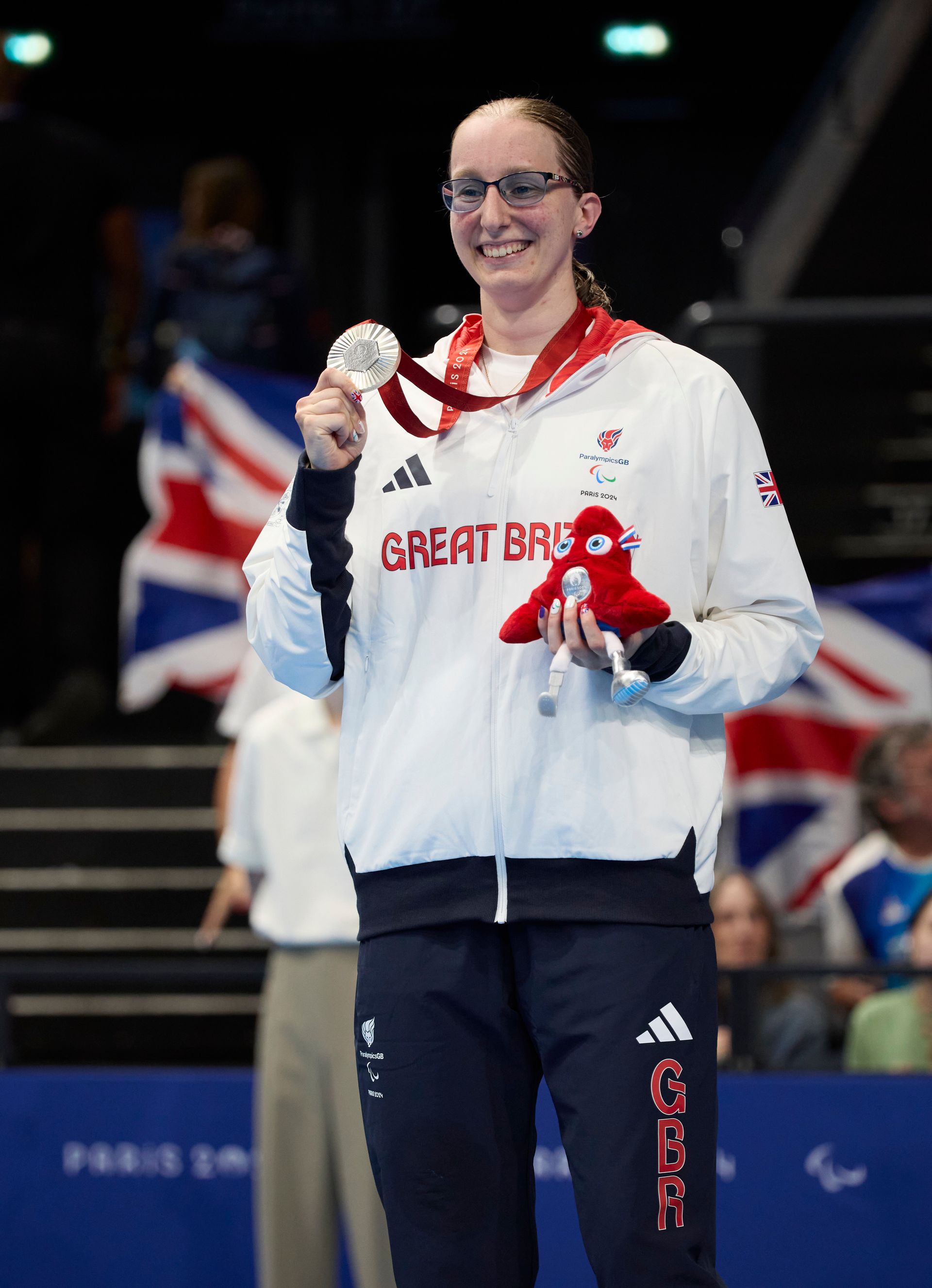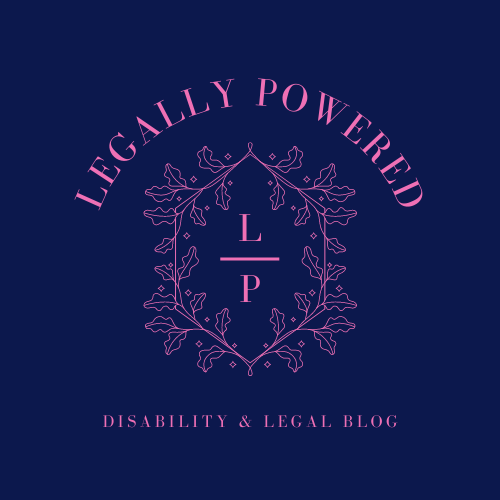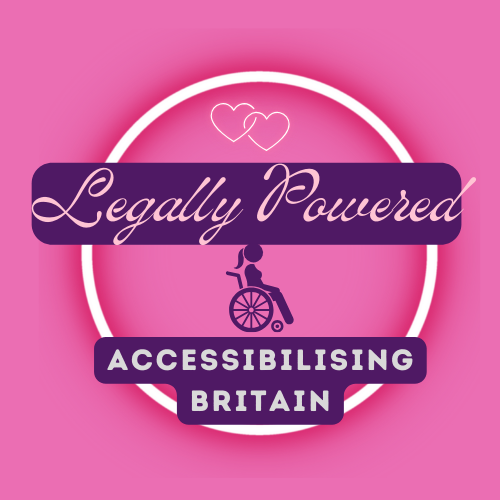Q & A with Paralympian Debutant and European Champion Callie-Ann Warrington
Swimming the 100m butterfly and 100m freestyle we talk about accessibility, campaigns, nerves, and excitement ahead of the games and how coming away with a silver really felt.

Before heading out to the Paris, Callie-Ann agreed to join me to for a Zoom call to discuss her upcoming excitment over the Paralympic Games. 2hrs later and we finally wrapped it up. A great interviewee who knew what she was aiming for and worked hard to get there. We talked about her excitement for her new kit, and how she copes with juggling her career as a radiographer with the games and her condition, the competitor campaign, before answering some fun-facts about herself.
These are your first Paralympics what emotions are running through you?
“All the time the Olympics were on I was fine, I was like, we’ve got ages until they get to me. Then they were over, and it hit me! It started to sink in. Reality kicked me a bit and I said you need to start getting nervous now. So, I'm excited but nervous.”
Already a gold medallist in the S10 100m Butterfly at the European Championships 2024. Do you feel that puts an expectation on you to bring the gold home in the Paralympics?
“Well, that was unexpected for me. So, expectations yes and no. It'd be nice to come home with a medal. But it's my first ever massive competition. I've never done anything like this because even Europeans weren't near the scale of what I'm about to deal with.
When we come out poolside the commentators sometimes announces, ‘This person is the Gold European Championship holder’, so that puts more expectation from a spectator's viewpoint for me to win, but I am trying not to think too much about it.”
You have an impairment down the left-hand side of your body due to muscle spasms, how does that affect you when you swim?
“I didn’t notice it too much until I was 15/16. During the Pandemic, I was unable to get in the pool and had to have three months out. Three months to an able-bodied person is just a little loss of muscle tone, but they eventually build that up. I have not managed to build that up to what was pre-COVID and have lost a lot of use in my left leg, so I cannot kick properly in the water.
Earlier this year medics advised they think I have something called exercise-induced laryngeal obstruction where my muscles go into spasms. It can hit me on the fly in the pool. As long as I keep relaxed and think of my game in Maderia, I could have this in the bag. People need to understand though that, I can do a set one day and smash it out of the park and do the same the next day and sink.”
How do you cope with the competition and your condition?
“I want to do well. But I know that things can go wrong. Especially with my body. I could be having a really bad day. I try and do everything I can to not have those bad days, especially with the run-up, but it can happen. We always push our bodies to the extreme, and sometimes it pays off and other times it doesn't. Luckily, I have a day of rest between my two swims.”
You are in the S10 Classification, what does that mean in Swimming?
“Within the classification, it is very varied on people's impairments. For example, there are people in my classification with parts of their hands missing, whereas my impairment affects my whole left leg - It's a whole limb. Theirs is only part of a limb. It's just the way that they do the classification system.
They're looking at completely changing it next year or doing a review. The majority of the time though it's a mixture of upper and lower limb impairments.”
Do you have any adjustments that need to be made as part of your classification?
“They give us more time to settle on the block, but the main adjustments are what you can't be disqualified for. This is what separates para-swimming and able-body swimming, as we call it.
For example, breaststroke and butterfly. You have to have simultaneous legs. I've not got the coordination for it, so my legs aren't always simultaneous, I cannot be disqualified for that because I've got a lower limb impairment.”
You have advised you have Autism; do you find the sound of the crowd can get overstimulating, and if so how do you overcome that?
“I try not to get overstimulated because loud noises can trigger my meltdowns. I think as we're swimming, I've got something to focus on. I'm just about to race this - I'm having to think about how I’m going to race and things like that. It's a bit better for me to focus, but I do struggle with anxiety, especially performance anxiety.
One of my teammates is doing the same swims as me, and we've both sat down and said, if our headphones aren't on come and have a chat. That calms my nerves a bit and takes my mind off what's about to happen.”
You are a qualified radiographer away from the pool. How do you juggle your job, training, and your career?
“I don't know how I managed it some days. On a Tuesday I was getting up at 4:30am to go swimming, doing a 10-hour shift, back swimming, and then not going to bed until 11:30pm. I don't know how I did that. It was also various shift patterns in terms of earlies, lates, and nights. As well as doing 5 to 8 sessions a week in the pool. It takes dedication.”
What supporters do you have coming out to Paris?
“I have my family, my mum, my dad, and my other half. My brother is bringing my 12-year-old nephew out to visit me, my sister-in-law and nephew, and the people that I work with. It will also be nice to see family - friends who are making the journey. Unfortunately, my best friend is unable to be there as could not get the time off work, which is sad as she has supported me, through my whole journey.”
There has been controversy around replica kits being sold and how they are the same as the ones the Athletes wear, what are your thoughts?
“I think it is unfair to us athletes, having put in all the time and effort to get where we are and go to wear our kits proudly, to then see non-athletes wearing the same kit that they’ve purchased online. As a member of the public, you’ll see people wearing the kit and either mistake then for an athlete or completely disregard it as they know you can buy it.”
The kits have been made with modifications for the para-athletes, how do these benefit you?
“The zip feels easier to move than normal zips as I have always struggled with these. The trousers also have zips on the legs which I love as it means I can get my AFO on easier under my trousers. This is for everyone, so I haven’t had to ask for modifications.”
How do you feel about the ‘I’m not participating, I’m competing’ campaign?
“I can see where people are coming from, but I feel we are both a participant and a competitor. I know that when people hear about Paralympics, they think we just have a participation pass and just turn up, but it is far from it and the word competitor does add more power, but I personally use both depending on the conversation.
Callie-Ann came 4th in the 100m Fresstyle narrowly missing out on a podium spot by an 8th of a second to Italian swimmer Alessia Scortechini. In the 100m Butterfly, Callie-Ann was up against GB teammate Faye Rodgers. Callie-Ann came in a great second place claiming the silver medal in a Personal Best time of 1:06:41.
After the games, Callie-Ann talked about the race “I spoke to my coaches and they were happy with the pace I went out on, they just said you need to come back a bit quicker. I delivered that and a PB is brilliant.”
Talking about claiming the British One-Two Callie-Ann said, “To be able to race against Faye is just everything. We have been saying to each other the last couple of months ‘come on, we can get the one-two’. It was lovely to have her next to me. We are very good friends until we get to the blocks, then we are competitors, and it’s nice to be able to separate that. We are both very determined people.”
Fun checklist:
Three things can’t live without:
Family, Dogs & Chocolate
Favourite Film:
Finding Nemo
Something you enjoy doing in your spare time:
Boulder Climbing.
Athlete you are looking forward to watching:
All my teammates, especially Ellie Challis. Also, David Smith and I am hoping to have time to watch the final of the Wheelchair rugby.
Do you think you can win?
Oh yeah! I’m definitely going to go for it!
Congratualtions to Callie-Ann on her silver, we cannot wait to see what the future holds for this amazing swimmer.

